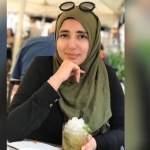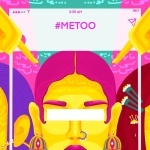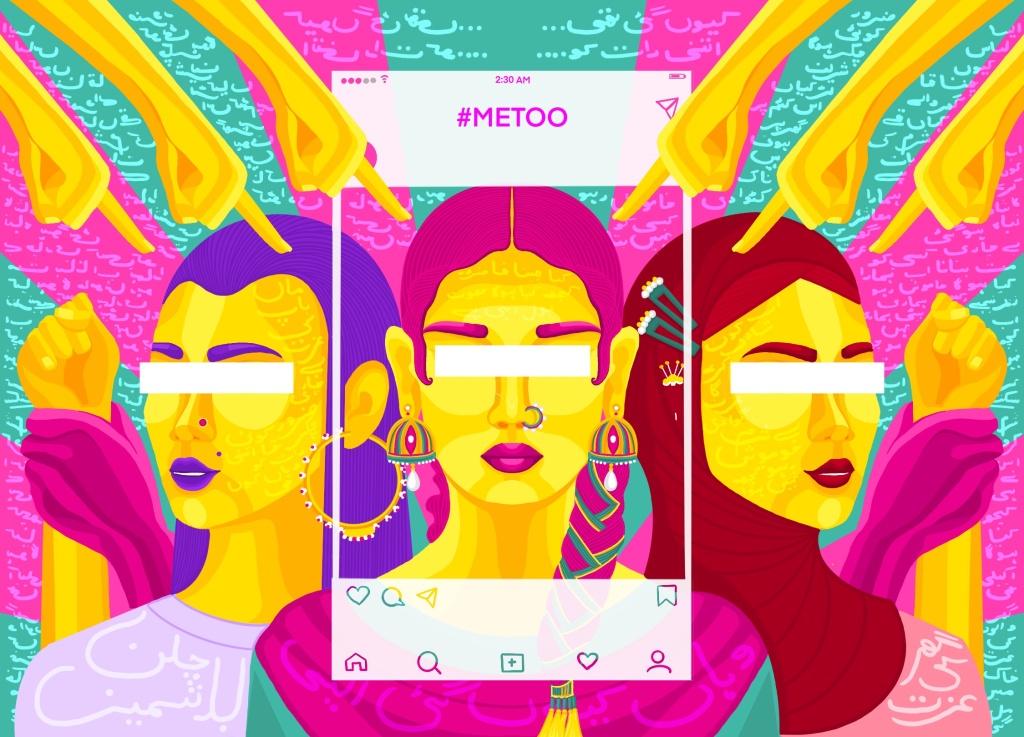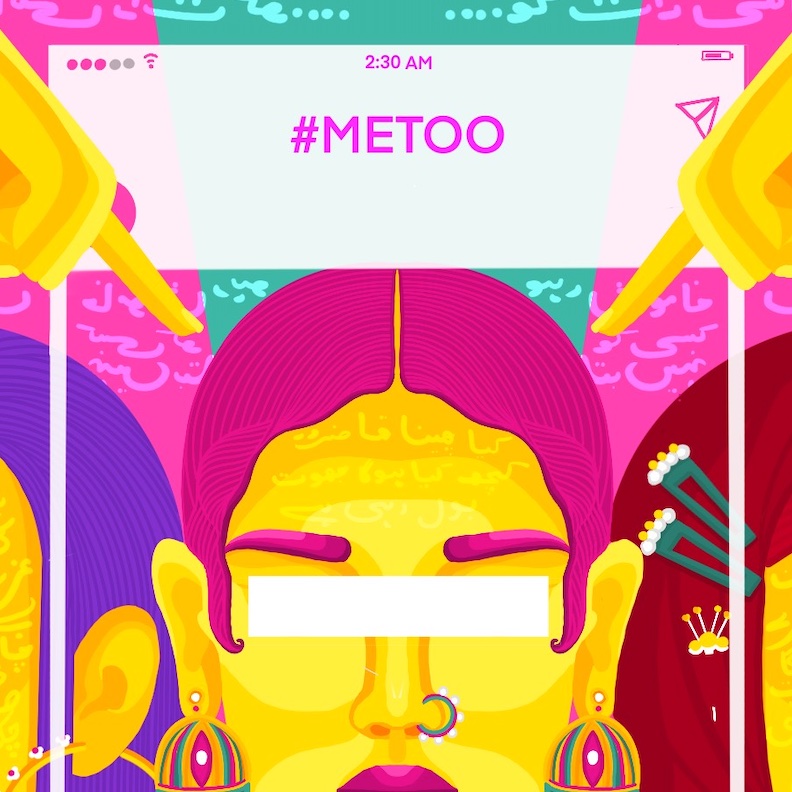In April 2018, Pakistani actress and singer Meesha Shafi took to Twitter to call out fellow singer Ali Zafar, accusing him of sexually harassing her. Her tweet, and the years’ worth of proceedings that were to follow impacted Pakistani society in a way unlike any other social justice movement ever has before. Shafi’s case became the country’s main focus when it came to its reckoning with the global MeToo movement, and three years since she came out with her story, the case has only gotten more and more complicated.
Shafi and eight other women who came forward with allegations of assault against Zafar are now fighting defamation suits, and Shafi is under a court imposed gag-order. The reaction to Shafi’s case is unfortunately not unique, and victim blaming for women who speak out is rampant in the country. The backlash to victims speaking out, and social norms around silencing anyone who doesn’t fit society’s given narratives, has meant that Pakistan’s MeToo reckoning has been slow.
Earlier this year, another woman shared her experience online, calling out singer Salar Shamas for assaulting her – and sharing WhatsApp messages between her and Shamas. In this case, the accuser chose to stay anonymous, a possibility offered by online communication that many Pakistani women rely on as a way of getting past social barriers around what they can and cannot speak about.
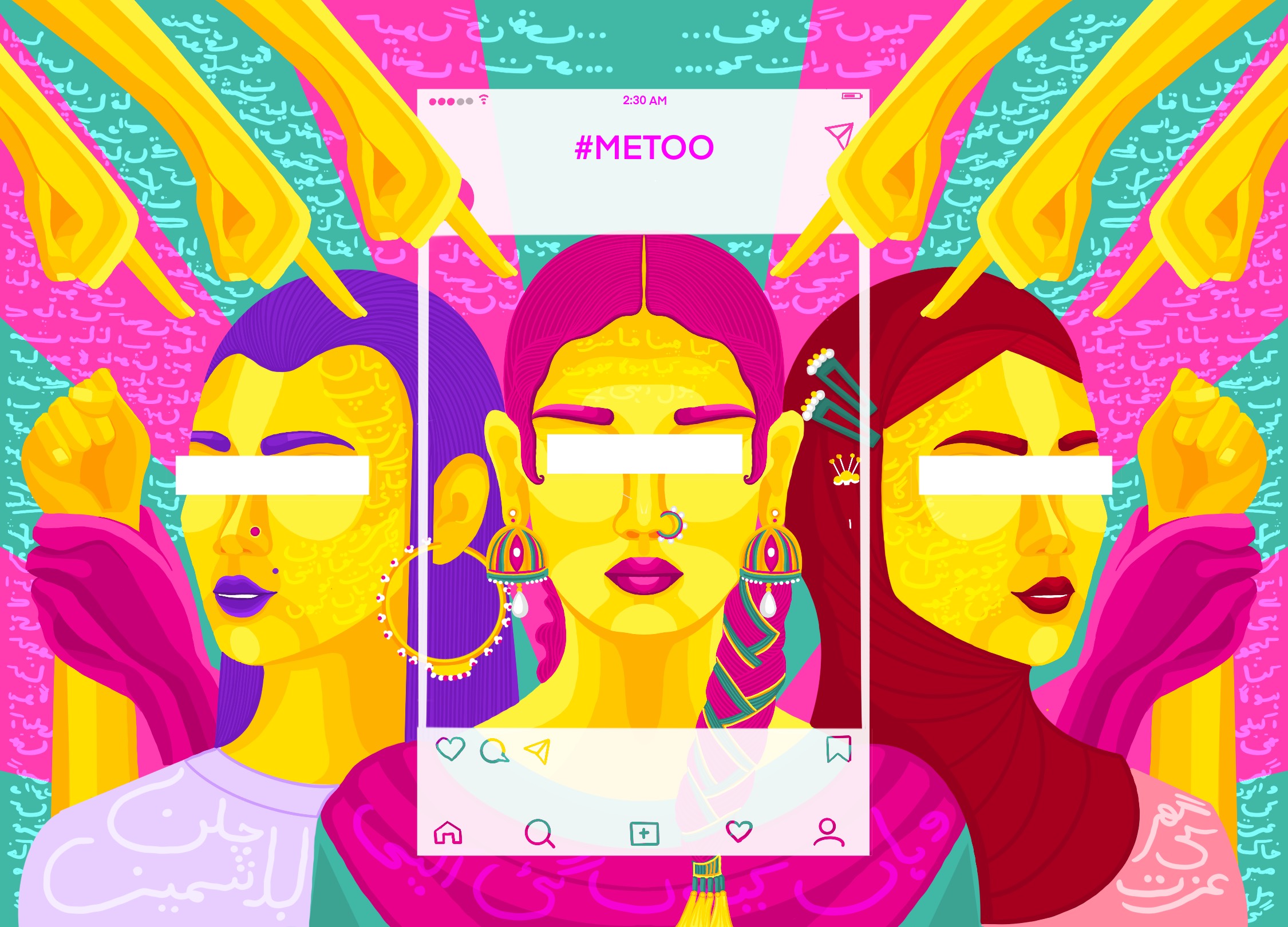
Illustration by Sana Naeem
It’s why Ghazal*, a young Pakistani woman who frequents online discussion groups and women-only forums, decided to post her experiences anonymously in a closed women’s group. Having always kept silent about the abuse she faced in the past, it was only when Ghazal saw other women posting anonymously, and getting genuine support, that she felt empowered to share her own story.
“As a young girl, when I’d tried to tell people what I had gone through I was immediately shut down, and so initially when women started posting in these closed forums I was skeptical,” she says. However, she adds that the growth in the number of these stories helped her feel she wasn’t alone, and finding a group of people who supported her, despite not knowing who she was, helped her process much of her trauma.
For Pakistani women, online anonymity is a gift and many are picking up on the benefits it can bring them. It’s what’s led to the popularity of anonymous secret-sharing spaces like those hosted by famous Instagram personality Swineryy, a Pakistani animator who creates characters that engage with societal ongoings in various ways. Swineryy’s secret sharing on her Instagram Stories has quickly become popular with viewers and sharers alike, as countless people choose to share their deepest, darkest secrets with a stranger.
If there’s one thing this anonymous secret sharing makes clear, it’s that Pakistanis, particularly those from marginalised backgrounds, have a lot to say and don’t have the opportunity to say it because they’ve never had a safe outlet. Be Baaghi, an Instagram-based anonymous storytelling platform for Pakistani women was founded because the creator of the page wanted to help Pakistani women feel seen. The founder chooses to stay anonymous herself, both for her own safety and because she doesn’t want the details of who created such a platform to distract from its main purpose: to give Pakistani women a chance to have their voices heard.
“We’ve been taught that speaking up and speaking out is shameful”
“The main reason I think women in Pakistan are afraid to speak out about injustices they face in their lives is because over so many years, we’ve been taught that speaking up and speaking out is shameful and it doesn’t help anybody and it makes society angry and it goes against your traditions and culture,” Be Baaghi’s creator says. “I think when you remove that name attachment – like this fear that if I were to speak out, my younger sister will get bullied at school, or my parents will feel shame or get isolated – you remove that whole consideration out of the equation. What happens is that they’re able to speak to somebody, let out their innermost thoughts, and honestly it’s such a beautiful thing.”
But while sharing with anonymous accounts like Be Baaghi or Swineryy may make people feel safer, those sharing their stories need to keep in mind that anonymity is never guaranteed, warns digital rights advocate Hija Kamran. Kamran is Programme Manager at Media Matters for Democracy, an organisation that focuses on digital literacy and development in Pakistan, and aims to create more awareness around privacy and online usage. “Someone in the chain will always know who you are when you share stories with these platforms,” Kamran says.
While she’s not discouraging anonymous story sharing – in fact she advocates greatly for the ways in which such platforms have aided online activism in Pakistan – she does warn those wanting to share to be careful: “If you’re someone who doesn’t want to share personal information or experiences of abuse, just make sure you take out any identifiable information from your story so nobody can identify or track you back from the info you’ve written in your story. This has to be ensured from all the other communications that we do on the internet: digital security always needs to be kept in mind.”
Legal implications and large-scale reactions to certain stories becoming public online may further put anonymity at risk. While the accusations against Salar Shamas quickly went viral online, with many social media users picking sides on the issue, reporting by mainstream media around the incident went silent equally fast. The Instagram page called Wall of Shame that shared the screenshots of WhatsApp messages no longer exists. Shamas had threatened to sue the page and anyone involved in the accusations for defamation, much like the path Zafar has been pursuing.
Kamran says the use of defamation laws in such ways endangers victims even when they speak out anonymously: “There’s always this threat of being charged with defamation because there’s no recorded proof of physical violence so there is room for people to charge the survivor. As we’ve seen before, if the page is charged they will reveal the person’s identity [who called out their alleged abuser].”
“Sharing that story anonymously soon gave me the courage to begin to tell the people closest to me about it”
In Shamas’ case, the screenshots were accused of being doctored, and since the initial reactions, little has come to light on what happened between the two parties. The backlash received by the sharing of those WhatsApp messages contributes to scaring off many other women who feel that they would be under threat from the endless vitriol of trolling online that comes with being a woman who shares her story.
It’s important to see these difficulties in managing online spaces and anonymity as areas that need to be improved upon rather than reasons to shut down such platforms; and it’s important for users to understand their digital rights. Almost a year after she first chose to share her story online, the growth of an online community of Pakistani women and a greater push to fight against societal evils like sexual violence in Pakistan has convinced Ghazal that she made the right choice in sharing her story: “Initially I was terrified. I constantly thought someone would figure out who I am, but sharing that story anonymously soon gave me the courage to begin to tell the people closest to me about it.”
But not everyone’s experience is like Ghazal’s. The gender gap in digital literacy in Pakistan contributes to the abuse women face online as well. Sabin Muzaffar, founder of Ananke Mag – a digital development platform empowering women through awareness, advocacy and education – points out how important it is to be educated about digital rights as online advocacy continues to gain ground across the globe: “I say this because there still are huge gaps and questions when it comes to cyber safety, not just in Pakistan but across South Asia. Women are one of the most vulnerable groups when it comes to cyber violence, so to begin and to reiterate, one must start with knowing your legal and digital rights.”
It’s clear that digital advocacy and Pakistan’s Me Too movement are far from perfect, but the impact has been more positive than negative when it comes to pushing Pakistani women to stand up and speak out. “They just want to know that someone else shares or relates to that struggle and in real life they’re not allowed to talk to anyone about it,” the creator of Be Baaghi says. “When you give that anonymity it’s kind of like a shield and gives them some comfort in speaking about these things that in real life they’d never have an opportunity to talk about.”
She says many of the stories shared with her are not even posted because those women just want someone to talk to; the ones that are posted become a stepping stone for inspiring other women and giving them the courage to come forward without having to hide behind anonymity. Soul Sisters Pakistan, one of the largest women-only support groups on Facebook, was first launched by Kanwal Ahmed in 2013 and has seen countless anonymous posts sharing experiences of all kinds.
Ahmed now hosts her own talk show – a web series on Youtube titled Conversations with Kanwal – where guests from all across Pakistan share their experiences and explore ways for society to move forward. Her efforts have bridged the gap in outlets for Pakistani women who now feel safe enough to move away from being anonymous and explore these social evils and taboos far more openly. Anonymous accountability isn’t the only solution but it’s giving Pakistani women hope and a way to move forward. And right now, that’s worth a lot.
* Name has been changed






